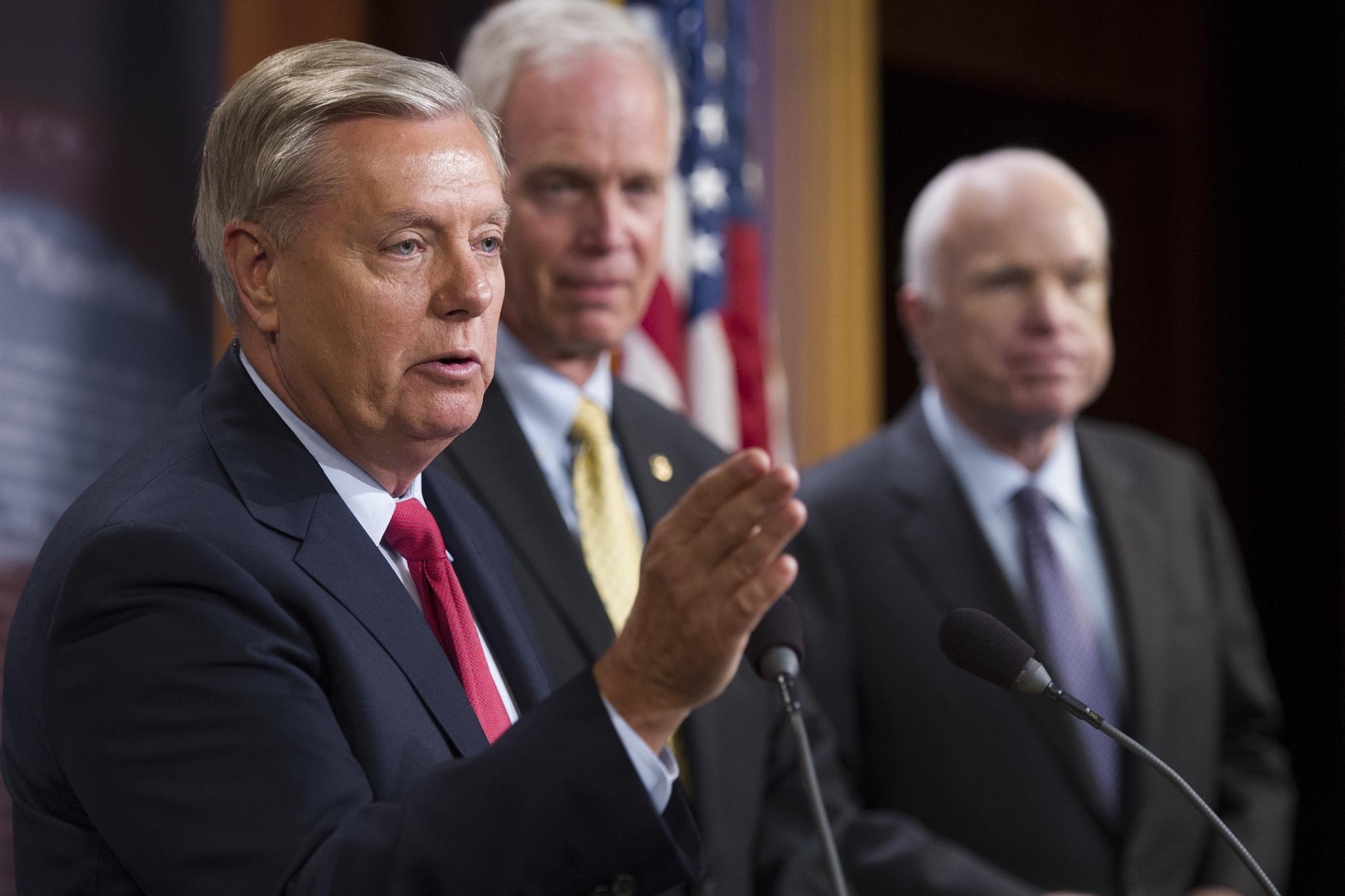House warned to stay in Washington as Senate Republicans seek win on repeal of Obamacare
The Republican leadership in the Senate is trying to pass a slimmed-down Obamacare repeal bill

Members of the US House of Representatives may have to stay in Washington longer than expected as they await the results of efforts by Senate Republicans to dismantle Obamacare.
The House had been scheduled to start its August recess on Friday afternoon, but House Majority Leader Kevin McCarthy has instructed members to keep their schedules flexible.
“While last votes are currently scheduled to take place tomorrow, Members are advised that – pending Senate action on health care – the House schedule is subject to change,” Mr McCarthy's announcement to members reads. “All Members should remain flexible in their travel plans over the next few days. Further information regarding potential additional items will be relayed as soon as possible.”
The House passed a measure in May to repeal and replace the Affordable Care Act, otherwise known as Obamacare, but the Senate has been struggling to follow suit.
Senate Majority Leader Mitch McConnell's current plan is to try to pass a “skinny” repeal, which would roll back three parts of the ACA: the individual and employer mandates, and the tax that was imposed on medical devices to help fund Obamacare. He can only afford to lose two Republican votes on the bill, which no Democrats are expected to support.
Majority Whip John Cornyn told reporters that the slimmed down repeal probably wouldn’t touch Medicaid – a healthcare programme for the poor that moderate Republicans have been concerned about cutting – and that lawmakers would address Medicaid “when we conference with the House.”
But Mr Cornyn then later suggested that House members could just take whatever limited bill the Senate passes and send it to Donald Trump to sign into law.
Iran's 'Trumpism' contest
Show all 10“There doesn’t need to be a conference,” Mr Cornyn said. “There could be an informal conference. The House could take up the Senate bill and pass that, or they could amend it and send it back.”
Republican Senator Lindsey Graham said he fears that the skinny bill – which he called a “disaster” – will go to the President's desk, rather than to a conference where both chambers of Congress can hammer out an improved measure.
“The skinny bill as a replacement for Obamacare is a fraud,” Mr Graham said at a news conference with Republican colleagues John McCain and Ron Johnson. All three senators – more than enough to tank the legislation – declared that they will not vote for the skinny bill unless they receive assurances that the measure will go into a conference committee if passed in the Senate.
The slimmed-down Obamacare repeal bill could lead to 16 million more uninsured Americans, according to estimates by the nonpartisan Congressional Budget Office, and increase premiums by about 20 per cent.
A few hours after the senators voiced their concerns, House Speaker Paul Ryan said the lower chamber would be willing to go to conference on the healthcare bill. It is unclear whether his comments have assuaged the Republicans' fears, as they had wanted a guarantee that the House would negotiate the healthcare bill with the Senate if it passed the skinny bill.
After the Senate narrowly voted this week to open up debate on a healthcare bill, Republican leaders have suffered multiple setbacks in their efforts to repeal a pillar of former Democratic President Barack Obama's legacy.
On Tuesday night, Mr McConnell’s most comprehensive plan to repeal and replace the ACA failed when he only received 43 votes out of the necessary 60.
The Republicans have a 52-member majority in the 100-member Senate.
Then, in a 45-55 vote on Wednesday, senators rejected a measure that would have rolled back major parts of Obamacare without an immediate replacement. That time, Mr McConnell only needed 50 votes to pass the bill.
Mr McConnell’s multiple failed attempts to pass a healthcare bill show how difficult it has been for him to garner support from members of his own party on a single plan that will uproot the ACA, which Republicans say has driven up premiums and forced consumers to buy insurance they do not want and cannot afford.
Over the past few weeks, moderate Republicans continuously expressed concern about how different versions of the legislation would have caused millions to lose their health insurance following cuts to Medicaid. Meanwhile, conservatives said the proposals did not do enough to erase Obamacare.
Subscribe to Independent Premium to bookmark this article
Want to bookmark your favourite articles and stories to read or reference later? Start your Independent Premium subscription today.

Join our commenting forum
Join thought-provoking conversations, follow other Independent readers and see their replies